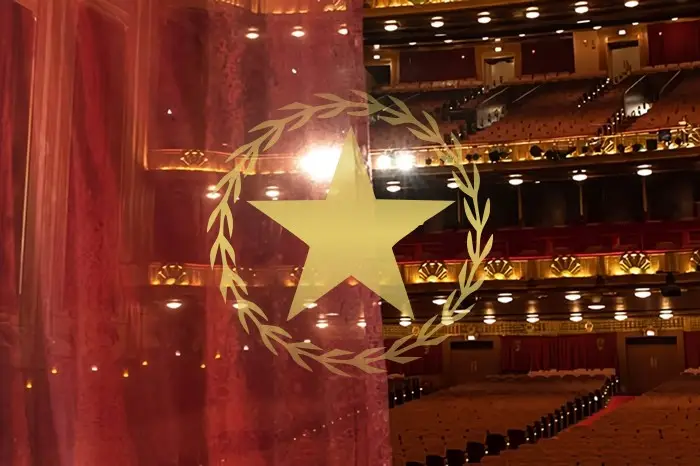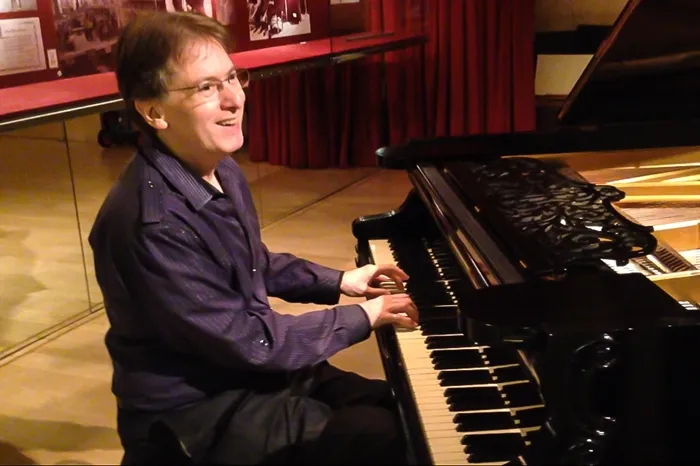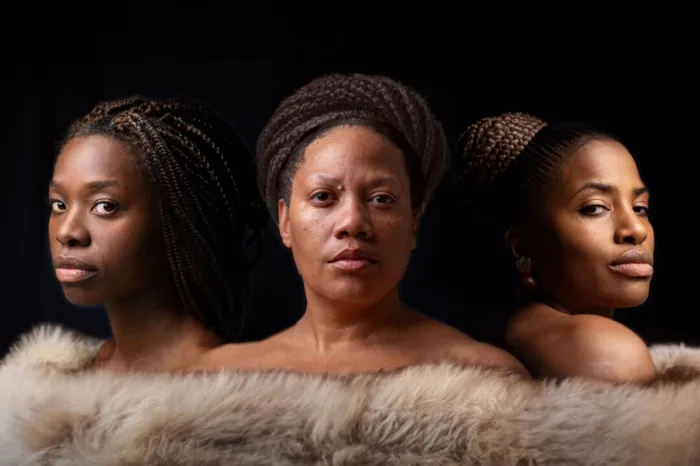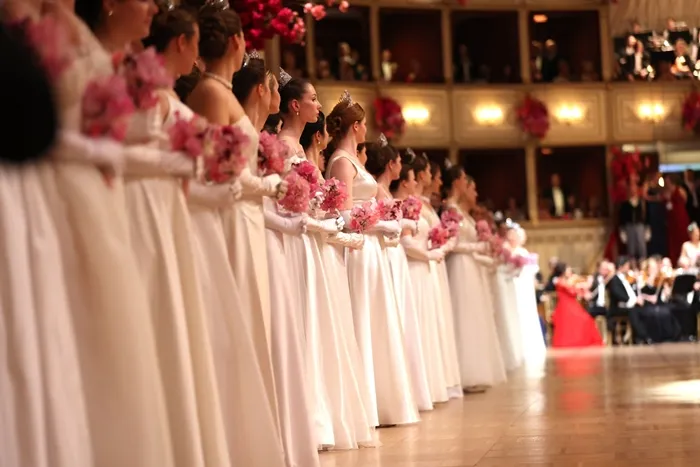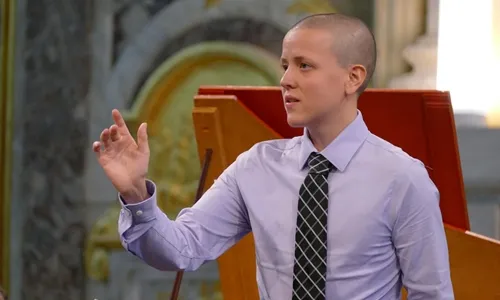
I used to believe that my voice type, which doesn't conform to the normative standards for my gender, would prevent me from seriously considering a career in vocal performance. This belief heavily influenced my decision to pursue early music.
Fortunately, Conway resident Elijah McCormack, a dedicated fan of baroque music, defied gender stereotypes and pursued his artistic passion. Coming from a musical family, McCormack started singing in choirs during his second grade and joined the treble choir at St. Paul's Episcopal Church in Fairfield, Conn. Spending about a decade there, he credits this experience for shaping his musical skills and the unique quality of his voice, influenced by the distinctive Anglican-style treble choir sound.
When it came time for college, McCormack chose to study Studio Art at Skidmore College in upstate New York, as he didn't believe that pursuing music performance was a viable option for a male soprano like himself. He felt there was a choice between being taken seriously as a man or as a soprano. However, McCormack's exceptional talent and powerful vocal abilities have garnered him acclaim, with The Washington Post praising his luminous voice in a December 2019 performance with the Washington Bach Consort. He has also received recognition from the Metropolitan Opera National Council Auditions and was featured in the Boston Early Music Festival.
Notably, McCormack is also a transgender man. In the realm of early music, which encompasses European music from the Middle Ages to the baroque era, the gender of the singers mattered less historically than the suitability of their voices for specific roles. Originally performed in cathedral settings where women were not allowed to participate, early music attracted voices that suited its sacred and lofty tones. This sometimes included castrati, young men who were castrated before puberty to preserve their high soprano range. As early music reached a wider audience and incorporated more secular themes, women began to participate and even sang male characters or perspectives.
For McCormack, it was the introduction to a specific repertoire by his teacher, Dr. Sylvia Stoner-Hawkins, that sparked his serious consideration of a performance career. Baroque operas, particularly those featuring roles for male sopranos or male altos, became his focus due to their popularity during that time.
Within the early music community, there are ongoing debates regarding responsible interpretation of works, including decisions about ornamentation, tuning, instrumentation, and the use of vibrato. McCormack believes that honest self-expression is the key when it comes to the vibrato question. He emphasizes that singing is a deeply personal experience, and as long as a singer is expressive, maintains pitch accuracy, and conveys the intended message, they should be free to sing in their own natural style.
McCormack cites historical figures like Claudio Monteverdi, a composer who expanded the audience for early opera beyond courtly nobles, and Barbara Strozzi, a well-known female baroque composer. He admires Strozzi's sense of humor in her music and acknowledges the challenges she would have faced as a woman composer in that era.
In a YouTube video featuring his performance with Arkansas Baroque Music, McCormack demonstrates Strozzi's comical and exciting approach to music. The piece, "L'Astratto," portrays a troubled soul seeking solace through song. McCormack's interpretation captures the humor in Strozzi's variations as he humorously tears apart each attempted song, ultimately expressing the protagonist's own emotions in their own words.
Today, the early music landscape embraces playfulness and exploration, reminiscent of what Strozzi might have appreciated. McCormack highlights the American Bach Soloists Festival and Academy's program in San Francisco, which combined Bach with bluegrass and explored themes from the Brandenburg Concertos and cantatas in folk and jazz styles. He also acknowledges other transgender artists, such as Adrian Angelico, a trans male mezzo, and Lucia Lucas, a trans female baritone, who challenge normative ideas about vocal performance.
Ultimately, McCormack hopes that his performances convey a sense of having something meaningful to say. Whether it's through effectively communicating the essence and rhetoric of the music or presenting unexpected interpretations that challenge preconceptions, he aims to move people and serve the music by effectively conveying its intended message.
